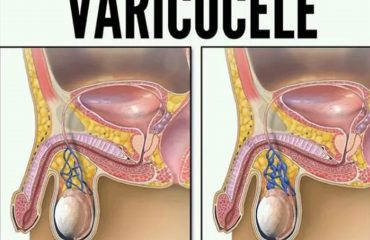The Grieving Brain
The end of a romantic relationship is truly agonizing. I remember feeling furious as I imagined the cad who might one day break my daughter’s heart. At the time, my husband consoled me by pointing out that she was five days old and safe – at least for a while.
Heartbreak really does feel like your heart is breaking, doesn’t it? It’s as if someone punched you in the stomach and, while you were down, told you that you’d never amount to anything, anyway. When you’re in the thick of the grief that accompanies the end of a relationship, it’s impossible to imagine that you’ll ever put the pieces back together and go on with your life. It’s not clear why it hurts so much, but one theory, by the great anthropologist Helen Fisher, is that ending a romantic relationship triggers the same feelings of abandonment and terror that we had whenever we were separated from our mothers at a very young age.
Researchers may have found another answer. It’s difficult to study grief; as it turns out, time really does heal all wounds. That’s good for the sufferer, but bad for researchers, who need to find study subjects in the throes of their sorrow. But the research that has been done shows that it’s not just all in our heads. When we grieve, there is a real change in what doctors call our “vegetative functions”.
As it turns out, the emotions caused by a terminated relationship can actually trigger changes in the brain. Arif Najib, MD, a German researcher, was looking for the connection between normal sadness and depression. He asked women who are grieving about the end of a romantic relationship to look at a photograph of their ex and to think sad thoughts about the relationship’s end. He found that their brains showed very similar activity – and that this activity was different from the activity he saw when those women were asked to look at a photo of a friend they’ve known for the same amount of time.
As expected, there was more activity in the areas of the brain that controls sadness. But there was also less activity in the amygdala, the area of the brain that controls emotion and motivation. It’s very similar to what happens and people who suffer from anxiety disorders, and what we see when we look at the brain of someone suffering from post-traumatic stress disorder (PTSD). The more intense the grief the woman was experiencing, the less activity the researcher saw.
In general, it’s a good idea not to make major decisions after any significant trauma – and I think we can safely say that the end of a relationship constitutes enough of a trauma to qualify. Dr. Najib’s work suggests that part of our brain shuts down when we are grieving – hardly an ideal position from which to decide a major change.
So how can your best whether the loss, grief, and melancholy that follows the breakup of a pivotally important relationship – or, for that matter, any of the losses that attend even the happiest lives?
Try to get plenty of sleep. Even one night’s disturbed sleep can elevate stress hormones.
Don’t resume (or pick) up habits that can hurt you. For example, don’t start smoking or excessive alcohol use. Don’t use sleeping pills or other drugs for longer than your doctors recommend; even if you are still having trouble after several weeks, find a professional with whom you can talk.
Avoid isolation. Even if your impulse is to distance yourself from other people. Talk to your friends. You may not be your usual, scintillating self, but this isn’t the time to worry about being a burden. Get plenty of hugs, as well. Women whose husbands were undergoing treatment for cancer were found to have stronger immune responses if they had good social support.
Don’t schedule elective surgery. Healing will take longer while you’re under the stress of grieving even for a minor procedure like an eye-lift.
Perhaps most important, postpone major life decisions. During the period immediately after a loss, the dopamine in our brains increases to help maintain our moral in the face of a disaster. This is helpful, but it can give us a false sense of clarity. That’s why people cope through the wake and funeral so well, but collapse into sadness and mourning a week after the burial or in the finalization of the divorce settlement. The pituitary gland then “turns on” the adrenal gland, the organ that is a factory for all the hormones we need to survive a threat. The stimulating hormones such as epinephrine increase, and so does cortisol, which can be particularly harmful if the grief goes on for too long.
A year after a loss, we should have recovered our balance. Even though the memory remains, and there are some sadnesses we can never really escape, the acute pain and disorganization that so disrupts our lives will fade with time. If it hasn’t, or if things get worse, ask your doctor for help. It may be time for some real self-exploration with a professional and some medication that will break the melancholy.
Marianne J. Legato, MD, Ph. D. (hon. c.), FACP is an internationally renowned academic, physician, author, lecturer, and pioneer in the field of gender-specific medicine. She is a Professor Emerita of Clinical Medicine at Columbia University College of Physicians & Surgeons and an Adjunct Professor of Medicine at Johns Hopkins Medical School. Dr. Legato is also the Director of the Foundation for Gender-Specific Medicine, which she founded in 2006 as a continuation of her work with The Partnership for Gender-Specific Medicine at Columbia University. She received an honorary PhD from the University of Panama in 2015 for her work on the differences between men and women.
At its core, gender-specific medicine is the science of how normal human biology differs between men and women and how the diagnosis and treatment of disease differs as a function of gender. Dr. Legato’s discoveries and those of her colleagues have led to a personalization of medicine that assists doctors worldwide in understanding the difference in normal function of men and women and in their sex-specific experiences of the same diseases.
She began her work in gender-specific medicine by authoring the first book on women and heart disease, The Female Heart: The Truth About Women and Coronary Artery Disease, which won the Blakeslee Award of the American Heart Association in 1992. Because of this research, the cardiovascular community began to include women in clinical trials affirming the fact that the risk factors, symptoms, and treatment of the same disease can be significantly different between the sexes. Convinced that the sex-specific differences in coronary artery disease were not unique, Dr. Legato began a wide-ranging survey of all medical specialties and in 2004, published the first textbook on gender-specific medicine, The Principles of Gender-Specific Medicine. The second edition appeared in 2010 and the third edition, dedicated to explaining how gender impacts biomedical investigation in the genomic era, won the PROSE Award in Clinical Medicine from the Association of American Publishers in 2018. A fourth edition is forthcoming.
She also founded the first scientific journals publishing new studies in the field, The Journal of Gender-Specific Medicine, and a newer version, Gender Medicine, both listed in the Index Medicus of the National Library of Medicine. She has founded a third peer-reviewed, open access journal, Gender and the Genome, which focuses on the impact of biological sex on technology and its effects on human life.
Dr. Legato is the author of multiple works, including: What Women Need to Know (Simon & Schuster, 1997), Eve’s Rib (Harmony Books, 2002), Why Men Never Remember and Women Never Forget (Rodale, 2005), Why Men Die First (Palgrave, 2008), The International Society for Gender Medicine: History and Highlights (Academic Press, 2017), and most recently, The Plasticity of Sex (Academic Press, 2020). Her books have been translated into 28 languages to date.
As an internationally respected authority on gender medicine, Dr. Legato has chaired symposia and made keynote addresses to world congresses in gender-specific medicine in Berlin, Israel, Italy, Japan, Panama, South Korea, Stockholm, and Vienna. In collaboration with the Menarini Foundation, she is co-chairing a symposium on epigenetics, Sex, Gender and Epigenetics: From Molecule to Bedside, to be held in Spring 2021 in Italy. She maintains one of the only gender-specific private practice in New York City, and she has earned recognition as one of the “Top Doctors in New York.”






